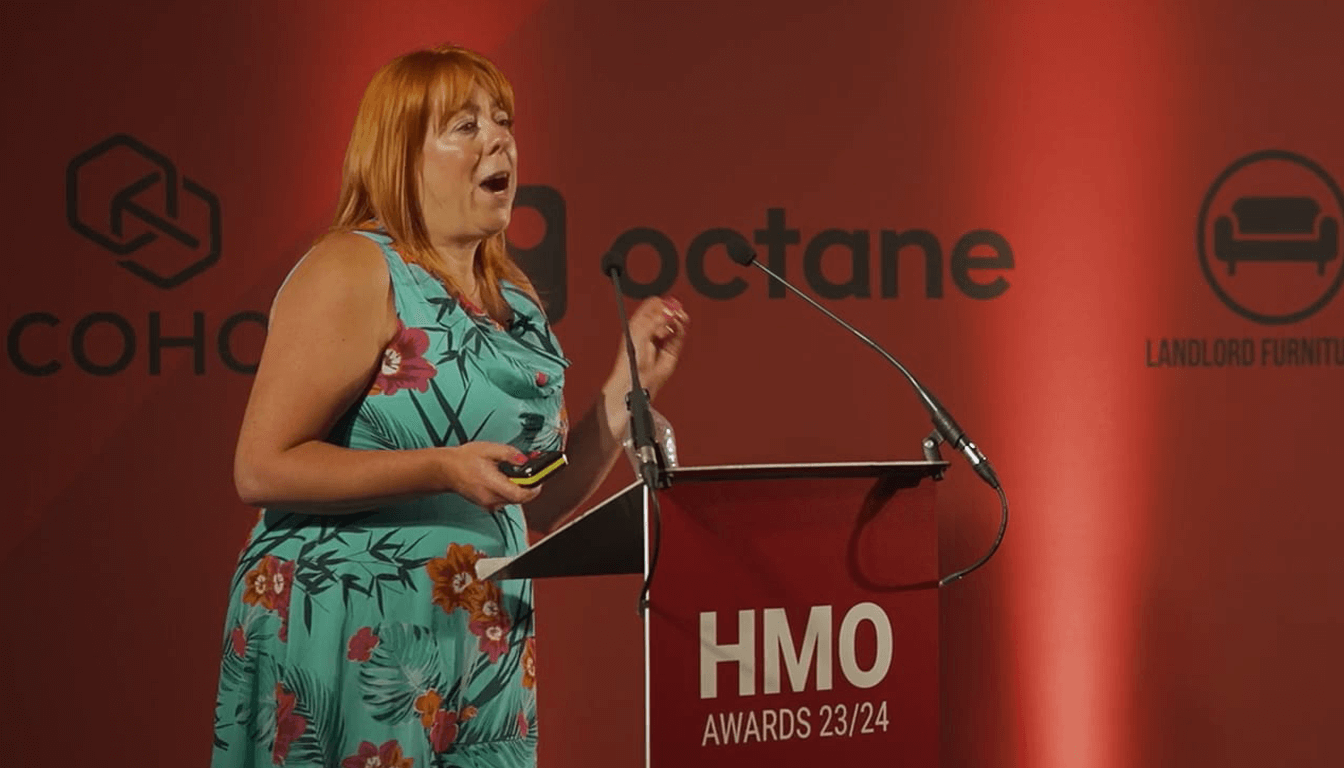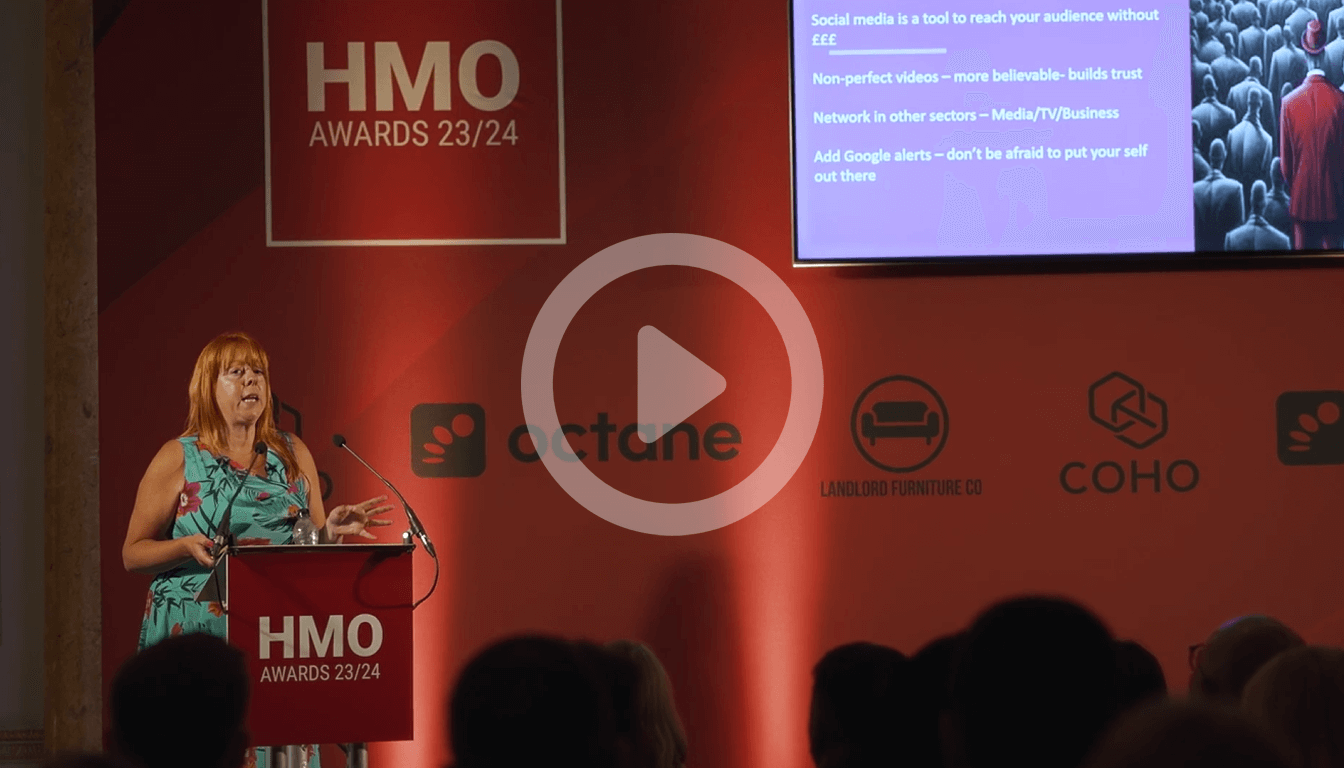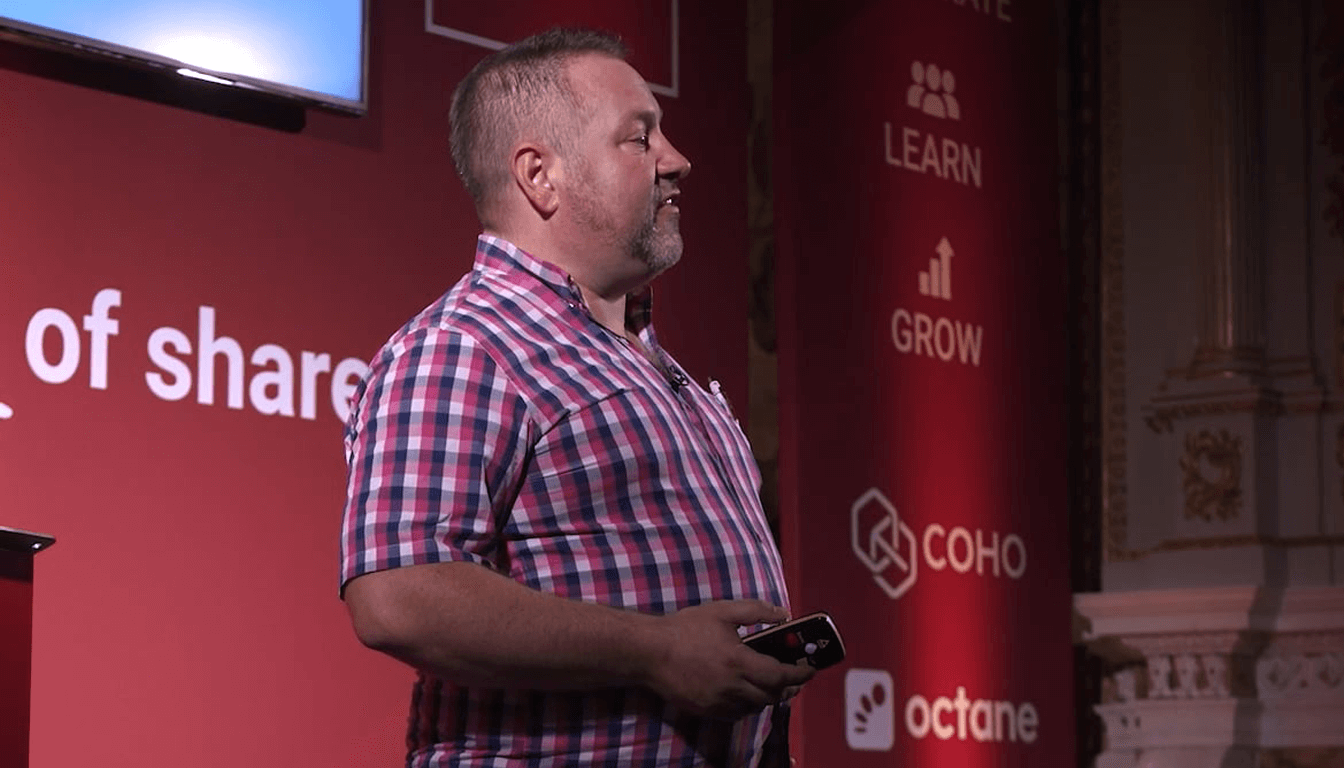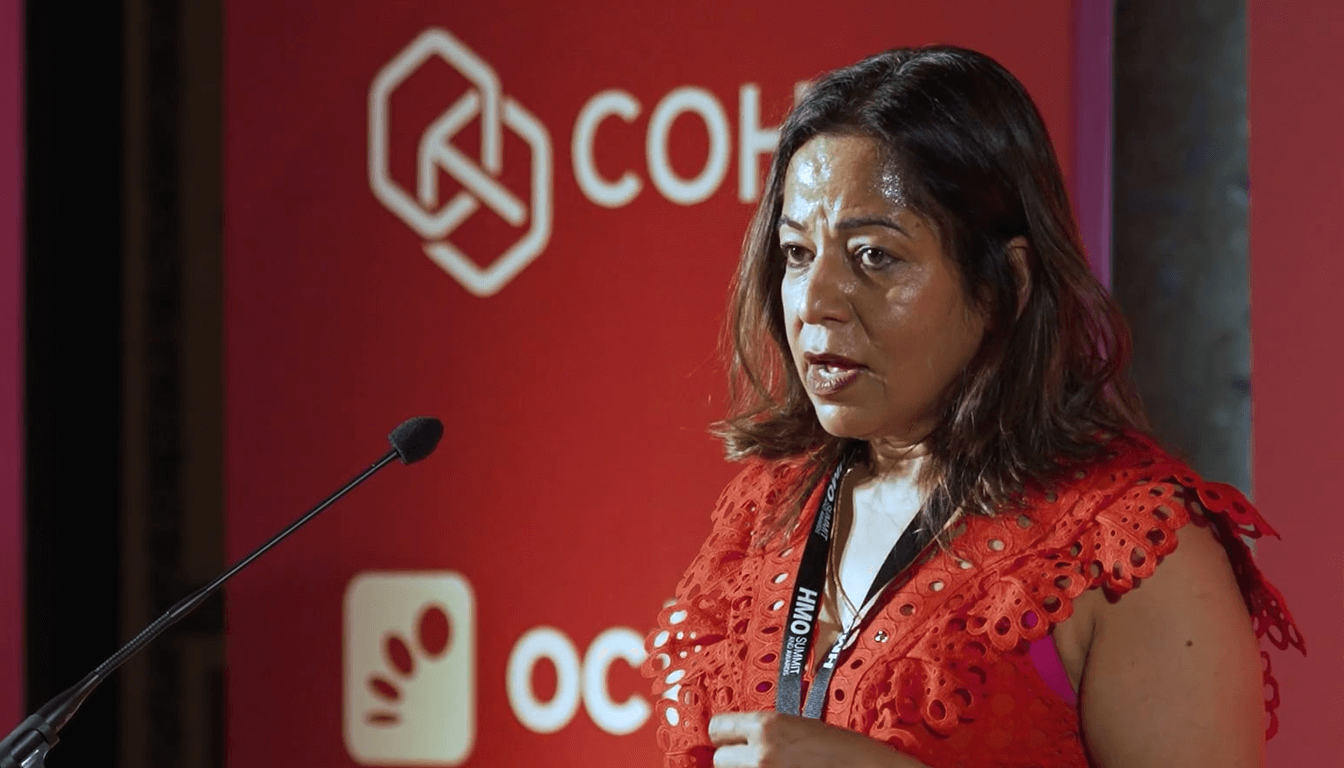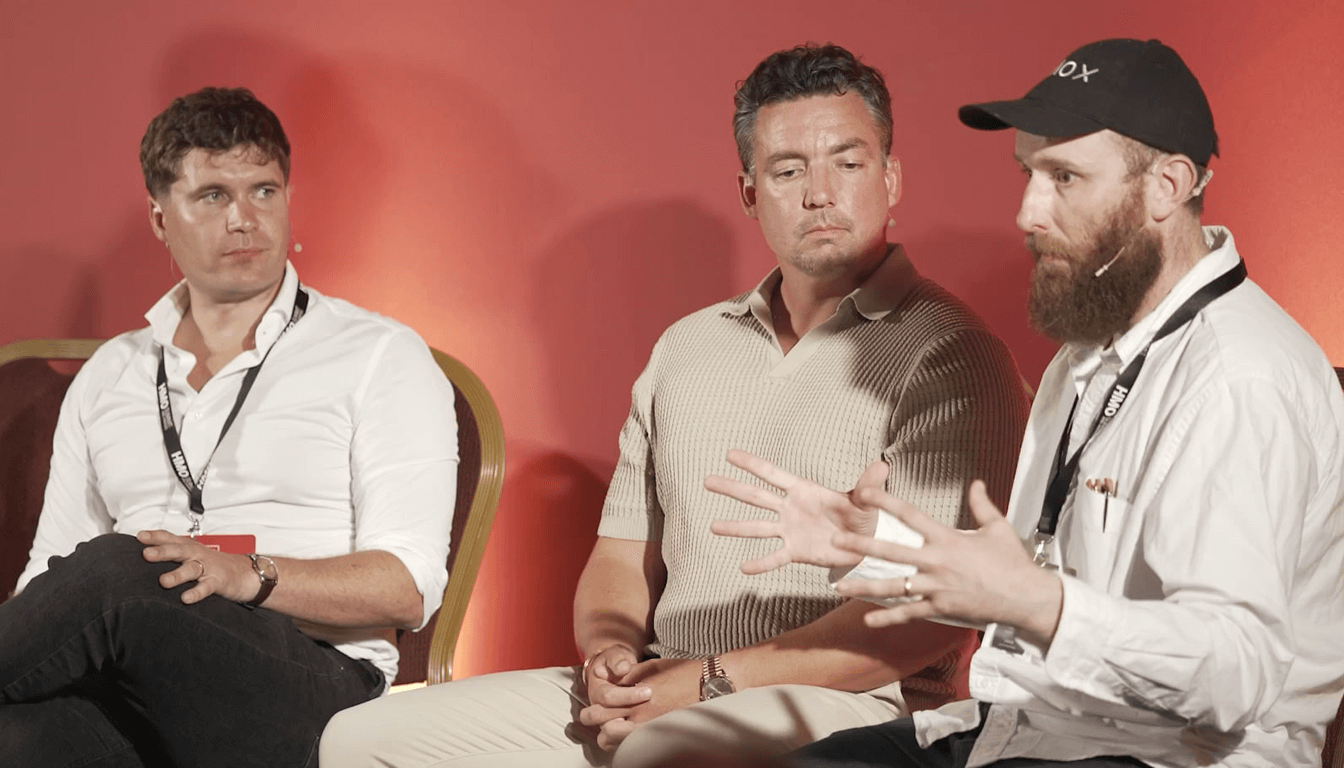In today’s overcrowded property world, especially within the HMO (House in Multiple Occupation) and lettings sector, standing out is no longer optional—it’s essential. But branding is no longer just about logos or slick taglines. As Julie Ford highlights, it’s about building a personal brand that reflects who you are, what you stand for, and how you solve problems for your clients.
Whether you’re an agent, landlord, investor, or educator in the property space, your personal brand is your most powerful asset. Done right, it can establish you as the go-to expert in your field and help you win trust and deals before a client even picks up the phone.
Start With You: What Do You Stand For?
It’s tempting to begin by promoting your company or the services you offer. But Julie urges property professionals to first understand what they personally bring to the table. What is your unique value? What do you believe in? What experiences and principles shape your approach to property?
Most letting agents or HMO operators look identical if you remove their branding. They offer the same services, use similar language, and target the same people. What sets you apart isn’t your business card—it’s your story, your values, and the way you solve problems.
Your ideal client isn’t just looking for a service—they’re looking for a problem-solver. So when sharing your success stories, flip the narrative: don’t just post that you dealt with a non-paying tenant. Say, “Here’s what we did when our landlord faced a rent default. Here’s how we can help if you’re in the same position.” Make your expertise feel relatable and useful.
Speak to the Real Pain Points of Your Audience
Effective branding isn’t just self-promotion—it’s empathy. The most successful property professionals are those who deeply understand their client’s problems and tailor their message accordingly.
Whether you’re posting on social media or writing an article, start with the reader in mind. Are they worried about Section 21 reforms? Are they unsure how to find high-quality tenants? Are they struggling with rent arrears or compliance?
When you address these concerns directly—and proactively—you not only show that you understand them, but you also position yourself as someone who can offer real solutions.
Get Outside Your Comfort Zone
Most of us feel safe in property-focused circles, attending investor meetups, landlord forums, and HMO events. But growth happens outside that bubble. Julie advises stepping into non-property networking events—think business expos, startup communities, or local trade shows.
Why? Because many of your potential clients may not even realise they need a property expert until they meet one. If you’re the only property person in a room full of accountants, lawyers, and entrepreneurs, you’re instantly differentiated.
Similarly, consider engaging with different industries online. Join Facebook groups or LinkedIn communities outside the traditional property niche. Your next JV partner, investor, or supplier might be one introduction away.
Embrace Imperfection on Social Media
We’re all guilty of re-recording videos 20 times, filtering photos, and obsessing over copy. But according to Julie, the content that resonates most is real, not perfect.
Those little bloopers and off-the-cuff comments actually humanize you. They build trust. They show you’re approachable and authentic. And in an industry often viewed as transactional, trust is the most valuable currency.
Use tools like Google Alerts to stay ahead of the curve on legislation, market trends, and local developments. The first person to comment on breaking news often gets the most reach—so stay sharp and be bold.
Be the Expert: Write, Speak, Share
Want to boost your profile without spending a penny on advertising? Share your knowledge for free. Start by:
- Writing guest articles for property industry publications.
- Contributing thought leadership to your LinkedIn feed.
- Launching a small property-focused networking event in your area.
- Reaching out to local radio stations to host or guest on a property show.
Julie started on Decorum Radio—an online local station—fielding live property calls. That experience snowballed into national exposure, podcast invites, and TV commentary. You don’t have to wait for opportunities. You can create them.
Once you’ve built trust and reach, you can begin packaging your content into paid products—courses, guides, or consultations.
Visibility + Credibility = Trust
Your brand is built on two pillars: visibility and credibility. You need both.
Visibility without substance is noise. Credibility without visibility is obscurity.
Being active in your community, visible on social media, and present at industry events makes you findable. But what converts that visibility into clients is your consistent value, honesty, and expertise.
Solve real problems. Speak clearly and directly. Tag the right people when sharing stories. Whether you’re breaking news on Universal Studios in Bedfordshire or offering lettings tips for new landlords—make sure the right eyes see your message.
Choose Your Niche, Own It Fully
Julie’s passion is legislation. For you, it might be tenant experience, energy efficiency, or interior design. Whatever it is, own it.
Focus on one lane, go deep, and become the most helpful voice in that domain. When clients think of that issue, you want your name to come to mind.
That’s how reputations are built—and sustained.
Create Your Own Stage
Don’t wait to be invited to speak. Start your own networking event. Host webinars. Organize local roundtables. Julie started a lettings and management event in St. Albans and Hemel Hempstead, which now attracts 100+ attendees every month—and it’s been running for over 14 years. When you create the platform, you control the message. You establish leadership by default.
Final Thought: Build With Intention
Your brand isn’t a logo or a colour scheme—it’s the feeling people get when they see your name. It’s what they whisper about you when you’re not in the room. To build a strong personal brand:
- Speak to problems before they arise
- Engage authentically, not perfectly
- Share generously before you sell
- Be consistently visible and credible
And most importantly—remember that trust is earned, not marketed. Now go build something unforgettable.
In today’s overcrowded property world, especially within the HMO (House in Multiple Occupation) and lettings sector, standing out is no longer optional—it’s essential. But branding is no longer just about logos or slick taglines. As Julie Ford highlights, it’s about building a personal brand that reflects who you are, what you stand for, and how you solve problems for your clients.
Whether you’re an agent, landlord, investor, or educator in the property space, your personal brand is your most powerful asset. Done right, it can establish you as the go-to expert in your field and help you win trust and deals before a client even picks up the phone.
Start With You: What Do You Stand For?
It’s tempting to begin by promoting your company or the services you offer. But Julie urges property professionals to first understand what they personally bring to the table. What is your unique value? What do you believe in? What experiences and principles shape your approach to property?
Most letting agents or HMO operators look identical if you remove their branding. They offer the same services, use similar language, and target the same people. What sets you apart isn’t your business card—it’s your story, your values, and the way you solve problems.
Your ideal client isn’t just looking for a service—they’re looking for a problem-solver. So when sharing your success stories, flip the narrative: don’t just post that you dealt with a non-paying tenant. Say, “Here’s what we did when our landlord faced a rent default. Here’s how we can help if you’re in the same position.” Make your expertise feel relatable and useful.
Speak to the Real Pain Points of Your Audience
Effective branding isn’t just self-promotion—it’s empathy. The most successful property professionals are those who deeply understand their client’s problems and tailor their message accordingly.
Whether you’re posting on social media or writing an article, start with the reader in mind. Are they worried about Section 21 reforms? Are they unsure how to find high-quality tenants? Are they struggling with rent arrears or compliance?
When you address these concerns directly—and proactively—you not only show that you understand them, but you also position yourself as someone who can offer real solutions.
Get Outside Your Comfort Zone
Most of us feel safe in property-focused circles, attending investor meetups, landlord forums, and HMO events. But growth happens outside that bubble. Julie advises stepping into non-property networking events—think business expos, startup communities, or local trade shows.
Why? Because many of your potential clients may not even realise they need a property expert until they meet one. If you’re the only property person in a room full of accountants, lawyers, and entrepreneurs, you’re instantly differentiated.
Similarly, consider engaging with different industries online. Join Facebook groups or LinkedIn communities outside the traditional property niche. Your next JV partner, investor, or supplier might be one introduction away.
Embrace Imperfection on Social Media
We’re all guilty of re-recording videos 20 times, filtering photos, and obsessing over copy. But according to Julie, the content that resonates most is real, not perfect.
Those little bloopers and off-the-cuff comments actually humanize you. They build trust. They show you’re approachable and authentic. And in an industry often viewed as transactional, trust is the most valuable currency.
Use tools like Google Alerts to stay ahead of the curve on legislation, market trends, and local developments. The first person to comment on breaking news often gets the most reach—so stay sharp and be bold.
Be the Expert: Write, Speak, Share
Want to boost your profile without spending a penny on advertising? Share your knowledge for free. Start by:
- Writing guest articles for property industry publications.
- Contributing thought leadership to your LinkedIn feed.
- Launching a small property-focused networking event in your area.
- Reaching out to local radio stations to host or guest on a property show.
Julie started on Decorum Radio—an online local station—fielding live property calls. That experience snowballed into national exposure, podcast invites, and TV commentary. You don’t have to wait for opportunities. You can create them.
Once you’ve built trust and reach, you can begin packaging your content into paid products—courses, guides, or consultations.
Visibility + Credibility = Trust
Your brand is built on two pillars: visibility and credibility. You need both.
Visibility without substance is noise. Credibility without visibility is obscurity.
Being active in your community, visible on social media, and present at industry events makes you findable. But what converts that visibility into clients is your consistent value, honesty, and expertise.
Solve real problems. Speak clearly and directly. Tag the right people when sharing stories. Whether you’re breaking news on Universal Studios in Bedfordshire or offering lettings tips for new landlords—make sure the right eyes see your message.
Choose Your Niche, Own It Fully
Julie’s passion is legislation. For you, it might be tenant experience, energy efficiency, or interior design. Whatever it is, own it.
Focus on one lane, go deep, and become the most helpful voice in that domain. When clients think of that issue, you want your name to come to mind.
That’s how reputations are built—and sustained.
Create Your Own Stage
Don’t wait to be invited to speak. Start your own networking event. Host webinars. Organize local roundtables. Julie started a lettings and management event in St. Albans and Hemel Hempstead, which now attracts 100+ attendees every month—and it’s been running for over 14 years. When you create the platform, you control the message. You establish leadership by default.
Final Thought: Build With Intention
Your brand isn’t a logo or a colour scheme—it’s the feeling people get when they see your name. It’s what they whisper about you when you’re not in the room. To build a strong personal brand:
- Speak to problems before they arise
- Engage authentically, not perfectly
- Share generously before you sell
- Be consistently visible and credible
And most importantly—remember that trust is earned, not marketed. Now go build something unforgettable.

